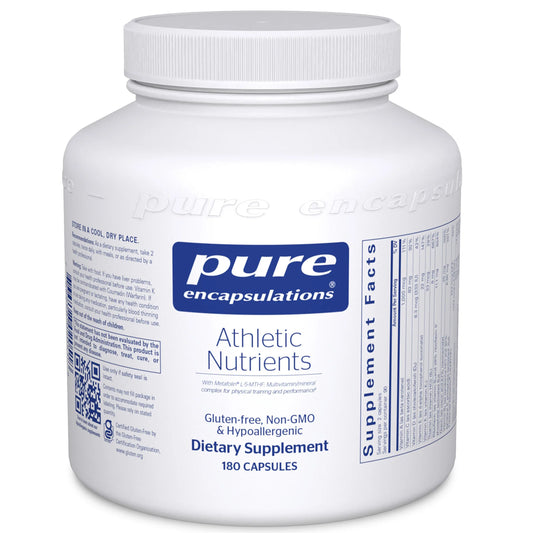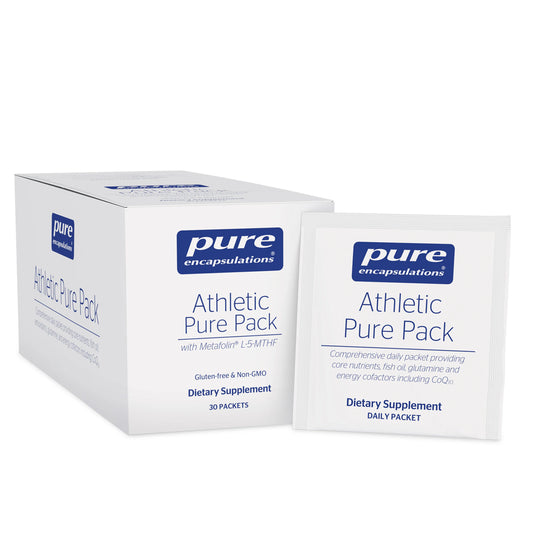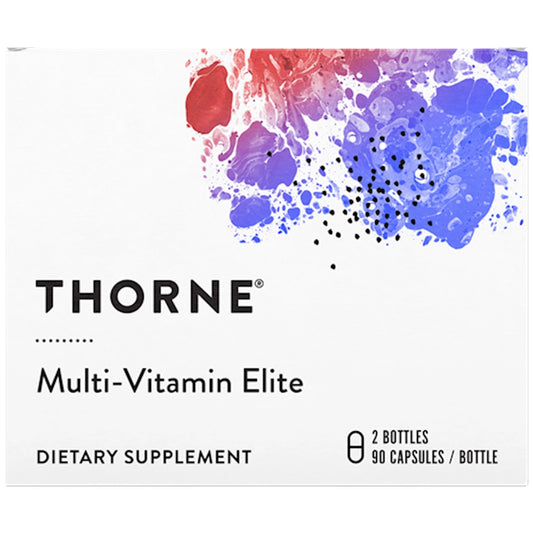Nutrients play an important role in enhancing sports and athletic performance. Athletes need an adequate supply of vitamins and minerals to achieve optimal performance because sports and athletes (physical activity) require high energy expenditure (amount of energy used to maintain essential functions) which must be supplied to prevent or avoid injuries, oxidative stress, and reduced physical performance Sports nutrition and multivitamins are formulated especially for athletes and those involved in sports activities.
Health benefits:
-
Provide complete sports nutrition
Sports nutrition supplements and multivitamins provide comprehensive nutrients to support physical training and performance. These provide vitamins, minerals, carotenoids (lutein, lycopene), creatine monohydrate, Coenzyme Q10, Alpha-ketoglutarate, alpha lipoic acid, L Carnosine, antioxidants, etc.
-
Get rid of vitamin deficiency and its symptoms
Athletes are usually deficient in iron, vitamin B12, etc. Excessive sweating, impaired nutrient absorption, and biochemical adaptation to training increase the risk of nutrient deficiency in athletes so taking a multivitamin helps to prevent nutrient deficiency.
Athletic multivitamins provide vitamins and minerals to athletes that are consumed during activity and need to be replenished to maintain overall health and wellness.
-
Provides anti-oxidant support
Athletes are at greater risk of antioxidant deficiency because of greater utilization of O2 which increases oxidative damage. Supplements provide anti-oxidant support to athletes and protect them from free radical damage.
-
Provides nutritional support for physical activity
Strenuous activities are associated with muscle injury and imbalance in the gut microbiome. Multivitamins play an important role in providing adequate nutrients and preventing injuries. It is important to note that certain vitamins like A, B6, D, and K are important to perform physical activity.
-
Support energy production and recovery
Provides essential sports vitamins, minerals, and other ingredients that support energy production and enhance rest and recovery.
Vitamin C, D, and zinc are important in improving and maintaining immune function.
Vitamin C improves immunity and is beneficial for athletes during periods of heavy training and traveling. Many studies have pointed out that vitamin C preserves athletes' health during periods of infection and also reduces the incidence of upper respiratory infection.
Vitamin D deficiency increases the fracture risk and also compromises muscle function so vitamin D is important for sports performance.
Calcium deficiency due to lactose intolerance and dietary restriction leads to poor bone mineral density. Calcium supplements improve bone health and may benefit athletes who are at risk of bone injury.
Frequently Asked Questions
1. What are sports nutrition supplements?
Sports nutrition supplements are formulated for those who are involved in sports activities. These supplements' composition and dosage depend on the specific requirements of athletes (energy, stamina, performance, recovery), common deficiencies, etc. Powder, multivitamins, sports drinks, etc are the common supplements used by sports and athletes. These are taken to build muscles, boost energy levels and performance, improve endurance, and maintain weight.
2. Why sports nutrition is important?
Sports nutrition is important because:
-
Supply essential nutrients.
-
To maintain the good health of athletes.
-
To support performance and recovery.
-
To optimize energy levels for training and competition.
-
Improve stamina and endurance.
-
To preserve muscle strength
3. How do vitamins and minerals affect sports performance?
Vitamins and minerals affect sports performance in many ways:
4. What vitamins are good for sports?
Vitamin B12 (energy metabolism), Vitamin D (calcium absorption and healthy bones), Vitamin B6 (energy and cellular health), and iron (transport oxygen to working muscles) are important vitamins for sports.
5. Which vitamin improves athletic performance?
Vitamins A, B6, D, E, and K are important vitamins for physical activity and improve athletic performance.
6. Can sports multivitamins help with muscle recovery after intense workouts?
Sports multivitamins contain vitamins, minerals, and antioxidants that help in achieving muscle recovery after intense workouts.
-
Anti-oxidant status is important to achieve healthy muscle function during the recovery phase after performing high-intensity and endurance exercises. Vitamins A and E act as antioxidants. Vitamin E promotes cell renewal and protects against free radicals.
-
Vitamin C supplements improve recovery and reduce post-exercise muscle soreness.
-
Taking polyphenols 3 days before an exercise session boosts recovery from muscle damage.
-
Tart cherry (powder/liquid) promotes recovery following resistance-based and endurance exercises. It also reduces muscle soreness after exercise. Studies have mentioned that 30 mL of Tart cherry drink with 600 mg polyphenols should be consumed 2 times a day at least 3 days before exercise because it reduces the inflammatory response and speeds up recovery after all types of exercise.
7. What are the top brands to choose for sports multivitamins?
You can buy sports nutrition supplements online by choosing supplements from high-quality brands like Pure Encapsulations, Douglas Laboratories, Thorne, Klean Athlete, etc.
8. How do vegan athletes choose the best multivitamins?
-
The best multivitamins for athletes should contain nutrients like vitamin B12, vitamin D, iron, calcium, zinc, iodine, and creatine.
-
Choose a high-quality supplement because it contains the most bioavailable form of nutrients.
-
Plant-based supplements are available containing different organic blends.
-
Check the label for terms like Vegan, vegan multivitamin, GMP certified, etc.
-
To choose the more personalized approach to confirm whether individual supplements are required, a blood test may be recommended.
9. What are the key nutrients vegan athletes should focus on in their multivitamins?
Vitamin B12, vitamin D, iron, calcium, zinc, and iodine are the key nutrients vegan athletes should focus on to prevent deficiency.
10. How does iron supplementation benefit female athletes?
Iron supplements benefit female athletes in numerous ways:
-
Prevent iron deficiency
-
Optimize athletic performance
-
Maintain endurance
-
Improve muscle function and work capacity.
-
Oxygen transport to working muscles
-
Reduce tiredness and improve physical performance
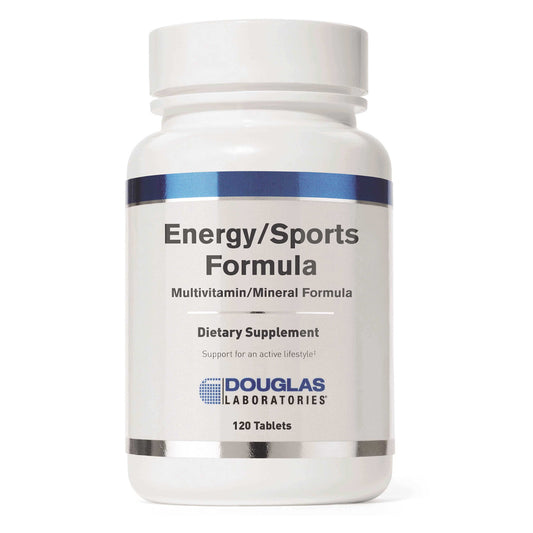 Sold outVendor:Douglas laboratories
Sold outVendor:Douglas laboratories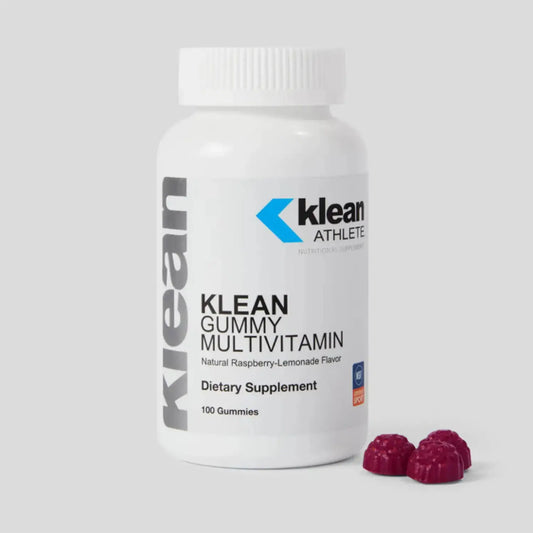 Sold outVendor:Klean Athlete
Sold outVendor:Klean Athlete
